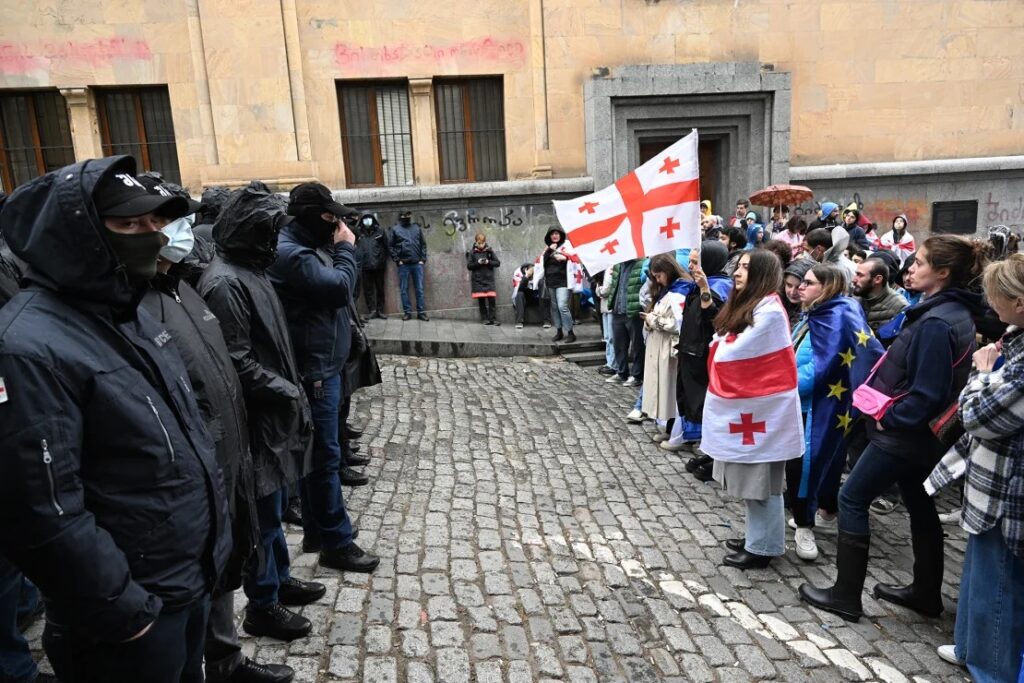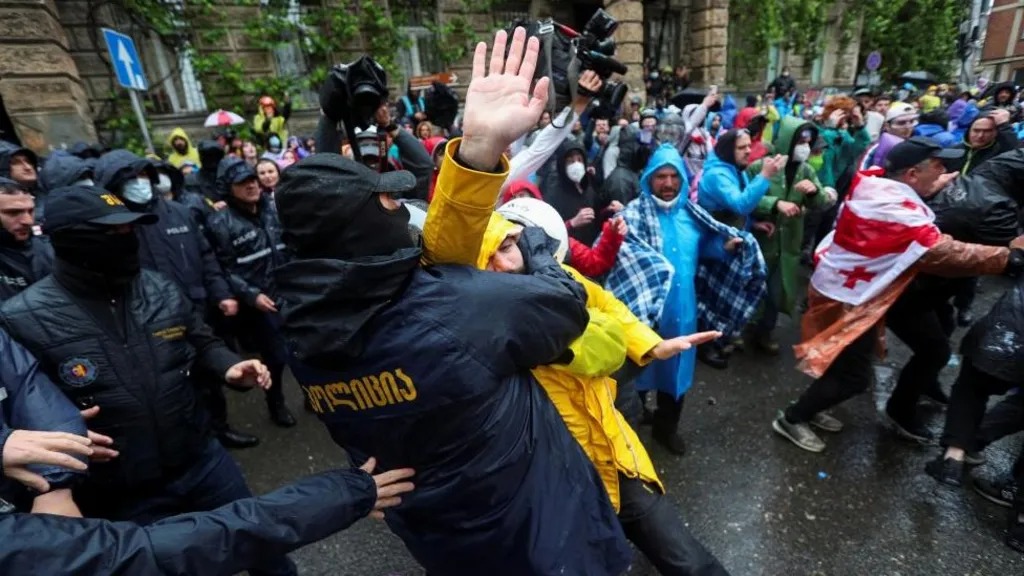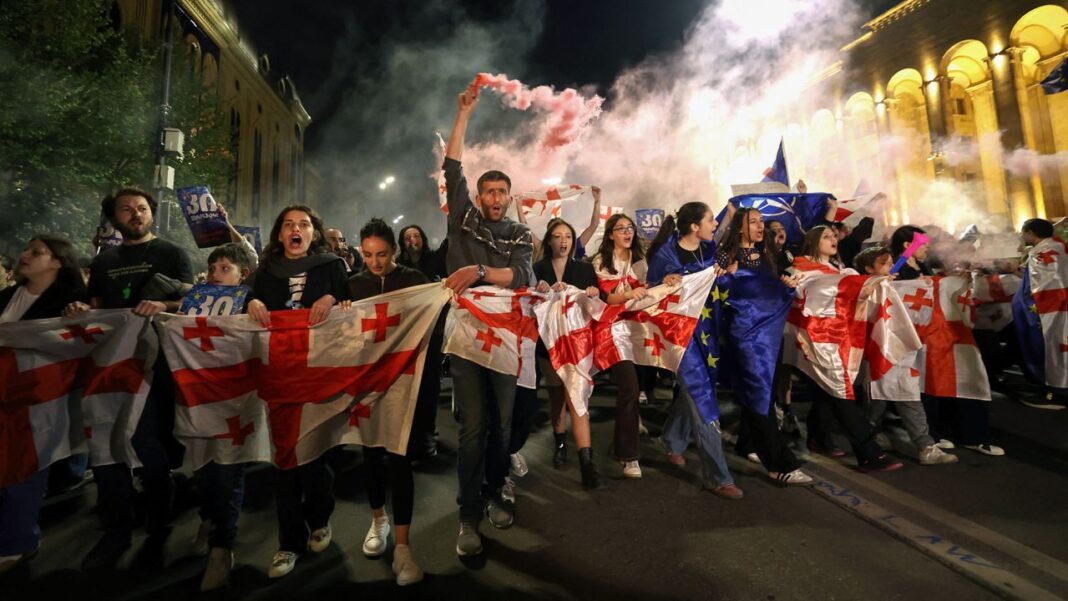Georgia faces a tense political climate marked by significant protests against the proposed ‘transparency’ law. While international coverage was initially sparse, leading global media outlets have now focused on Georgia’s complex journey toward European integration.
Euronews: EU’s Concerns over Georgia’s European Path
The European Union has expressed reservations about Georgia’s commitment to democratic reforms, a prerequisite for its EU membership aspirations. Brussels has criticized the Georgian government’s handling of protests and perceived closeness to Moscow. Members of the European Parliament have urged the EU’s High Representative for Foreign Affairs, Josep Borrell, to consider sanctions against Tbilisi for curbing freedom of expression.
🇬🇪🇪🇺 We ask HR/VP @JosepBorrellF to start preparing targeted sanctions against those in Georgia who are steering the country away from its European future.👇We will continue to support Georgia’s pro-European people. pic.twitter.com/9RKPDAF0ed
— Thijs Reuten 🇪🇺🌹 (@thijsreuten) May 13, 2024
“Georgia must reaffirm its dedication to the European path by adhering to the promises made when it was granted candidate status,” stated EU foreign affairs representative Peter Stano. The European Commission has condemned excessive force against opposition figures and journalists.
How will the ‘Georgian Dream’ navigate these international pressures while maintaining its domestic agenda?
CNN: Why is Europe so alarmed?
The Georgian Parliament is adopting a highly controversial bill, known as the “foreign agents” law, which has triggered protests throughout the former Soviet republic located in the Caucasus.
Tens of thousands of people are protesting the bill in the capital. Critics warn that it resembles the existing foreign agents law in Russia and could jeopardize Georgia’s membership in the European Union.
What you need to know about the proposed bill and the uproar it has caused.

What does the bill say?
The bill requires organizations that receive more than 20% of their funding from abroad to register as “agents of foreign influence,” or face fines.
The bill was developed by the “Georgian Dream” party, which controls the parliament. Georgian President Salome Zourabichvili called the bill a “carbon copy” of the Russian law in an interview with CNN.
She has vowed to veto the bill, but this may not have much impact. Georgia’s government is a parliamentary system, with real power resting with Prime Minister Irakli Kobakhidze. The billionaire founder of the “Georgian Dream” party and former Prime Minister Bidzina Ivanishvili also wields significant political influence.
What have other countries said?
White House National Security Advisor Jack Sullivan wrote on X that Washington is “concerned about democratic backsliding in Georgia.”
“Georgian lawmakers face a critical choice – to support the Euro-Atlantic aspirations of the Georgian people or to adopt a Kremlin-style agent law that goes against democratic values,” he said. “We stand with the Georgian people.”
The Kremlin claimed that the law was being used to “provoke anti-Russian sentiments” and added that the protests were “influenced from outside.”
“This is a common practice for many states that do everything possible to protect themselves from external influence. All countries take measures in one form or another, but all these bills have the same goal,” said Kremlin spokesman Dmitry Peskov in April.
European Commission President Ursula von der Leyen said earlier this month that she is watching developments in Georgia with “great concern” and reiterated Brussels’ dissatisfaction with the law.
“Georgia is at a crossroads. It must stay on the path towards Europe,” she said.
Could the law affect Georgia’s EU membership?
Absolutely.
BBC: Georgia approves controversial ‘foreign agent’ law, sparking more protests
The proposed law has triggered massive protests in Georgia, with thousands rallying near the parliament building. International figures, including the President of the European Commission, Ursula von der Leyen, and a White House national security advisor, have voiced deep concerns over the law’s implications for democracy and Georgia’s European aspirations. Critics fear the law could be exploited to suppress opposition and civil liberties, drawing parallels to similar legislation in Russia. The Kremlin has dismissed these accusations, claiming the law is a protective measure against foreign interference.


